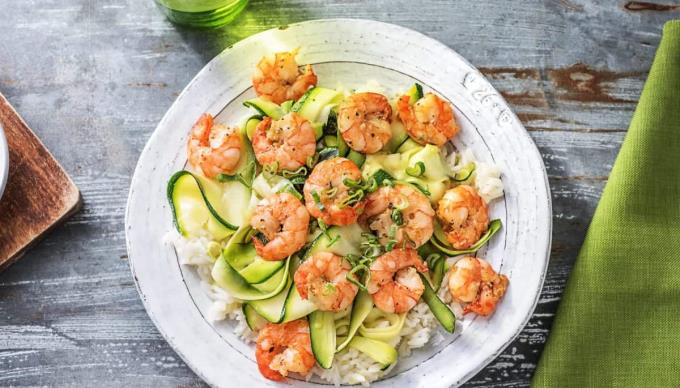Whether pregnant women eat shrimp well is the question of many pregnant women because shrimp meat is a rich source of nutrients, but can still cause certain risks.
A rich diet during pregnancy not only creates appetite for pregnant mothers but also provides the fetus with many essential nutrients to meet the development of the baby. Besides lean protein sources, fish, poultry, legumes, shrimp is also on the list of nutritious foods. However, should pregnant women eat shrimp? Please join aFamilyToday Health to find out the answer through the following article.
Can pregnant women eat shrimp?
Pregnant women can completely eat shrimp during pregnancy without any problems. Although some types of seafood are considered to pose a risk of mercury toxicity in babies in the womb, shrimp is on the list of low mercury foods. Besides, if you carefully cook and limit the serving size to about 340g a week, shrimp-processed dishes will bring certain health benefits.
If you can eat shrimp, then can pregnant women eat shrimp paste, sour shrimp paste or affordable? The answer to this question is possible. However, you should only eat shrimp paste when the ingredients that make up this dish are hygienic in processing and preserving or boiling or stir-frying with other dishes.
6 benefits of shrimp for pregnant women

Some of the positive benefits when pregnant women eat shrimp during pregnancy include:
Low fat: Shrimp is almost a perfect food because they contain low fat content, pregnant women who eat shrimp will not be too concerned about sudden weight gain.
Pregnant women eat shrimp to help supplement omega-3: Another benefit of eating shrimp during pregnancy is to help pregnant mothers supplement omega-3 fatty acids. Shrimp are rich in important omega-3 fatty acids, such as eicosapentaenoic (EPA) and docosahexaenoic acid (DHA). DHA fatty acid supports fetal brain, central nervous system and eye development
Rich in amino acids and protein: About 84g of cooked shrimp contains 21g of protein, suitable for providing the body with the necessary energy. Besides, shrimp is also rich in essential amino acids, serving the development of the fetus, because the body cannot produce amino acids, so pregnant mothers need to supplement this nutrient through food.
Iron supplement: Each 100g of shrimp provides about 1.8 g of iron. According to experts, iron is a very important nutrient for the overall growth and development of your baby. Iron also reduces the risk of anemia during pregnancy, helps blood supply to the fetus and reduces the risk of preterm birth .
Astaxanthin Supplement: Shrimp is also rich in a type of carotenoid antioxidant called astaxanthin. Astaxanthin works to protect the body against inflammation by preventing cell damage caused by free radicals. This factor is especially important for pregnant women because the period of pregnancy makes you more likely to encounter many infections or inflammation because the resistance is not as strong as before.
Packed with many other essential nutrients: Calcium, potassium, sodium and magnesium are essential minerals during pregnancy. They stimulate bone health, regulate enzyme production and maintain fluid balance. 100g of fresh shrimp provides about 100 mg of calcium, 300 mg of phosphorus and 40μg of selenium. Shrimp is also high in vitamins A, D, E, B12 and B3. Pregnant women eat shrimp also prevent the risk of osteoporosis can appear during pregnancy. In addition, selenium will aid in boosting the immune system during pregnancy .
Tell pregnant women to eat shrimp safely
If you are a lover of dishes made from shrimp, do not ignore the tips to be able to enjoy this delicious seafood while ensuring safety for both mother and baby:
Do not eat more than 340 grams a week to limit excess passion.
Priority should be given to fresh shrimp and choose to buy from reputable places with clear origin.
If pregnant women eat frozen shrimp for food preparation, make sure you thaw properly.
Always eat cooked shrimp, and do not eat raw shrimp to limit the risk of food poisoning.












